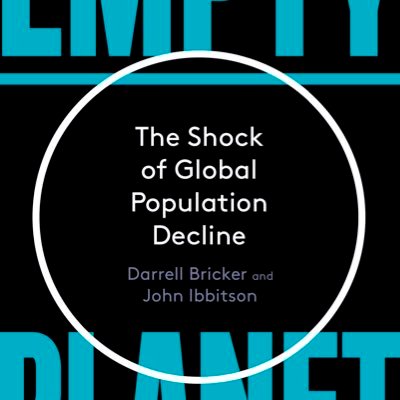Over the last few years, I’ve typically shared a list of book recommendations on a monthly basis. Since I didn’t read many books published in 2019 until January I didn’t share my first list on the year until the first day of February. With so many wonderful books being published early in 2019, I’ve decided to share a second February list – a bonus list.
Over the last two weeks, I read several new books worth recommending. The following volumes were all published in 2019.
- (5.0) Empty Planet: The Shock of Global Population Decline by Darrell Bricker and John Ibbitson (Crown, 2019)
- (4.5) A Glad Obedience: Why and What We Sing by Walter Brueggemann (Westminster John Knox Press, 2019)
- (4.5) Shameless: A Sexual Reformation by Nadia Bolz-Weber (Convergent Books, 2019)
- (4.0) Minding the Web: Making Theological Connections by Stanley Hauerwas (Cascade Books, 2019)
- (4.0) I Think You’re Wrong (But I’m Listening): A Guide to Grace-Filled Political Conversation by Sarah Stewart Holland and Beth A. Silvers (Thomas Nelson, 2019)
- (3.5) Rethink Communication: A Playbook to Clarify and Communicate Everything in Your Church by Phil Bowdle (Center for Church Communication, 2019)

Empty Planet
World population has been growing rapidly for quite some time. The global population reached 1 billion in 1800, 2 billion in 1927, 3 billion in 1959, 4 billion in 1974, 5 billion in 1987, 6 billion in 1999, 7 billion in 2011, and is projected to reach 11 billion by 2011 according to the most frequently cited data from the United Nations (UN). Analysts, politicians, and planners of all sorts are rightfully concerned about the impact of this many people on the planet.
In Empty Planet: The Shock of Global Population Decline Darrell Bricker and John Ibbitson recount their exploration of population growth, and posit projections that challenge the widely accepted narrative. To do so, they travel to cities located on six continents to talk to young people about their experiences to date and feelings about having children in the future, consider scholarly research, and review governmental reports. In short, they recognize that the rate of population increase has stabilized and has begun to slow and project that within three decades the world will reach peak population then start a decline that may never end.
Notably the authors’ projection is aligned low variant option in the United Nations modeling. For context, the United Nations publishes three scenarios that are referred to as low, medium and high variant. The medium option is the one believed to be most likely, and is the one quoted above leading to a population of 11 billion by 2100. The low and high are adjusted using total fertility rates that are 0.5 lower and 0.5 higher than the medium variant. The high variant would lead to a population of 17 billion in 2100 while the low variant shows population peaking at 8.5 billion around 2050 before shrinking to around 7 billion by 2100.
So What?
What if the low variant or something similar proves to be correct? Globally, imagine a future of increased educational attainment by women and increased urbanization that contribute to yield ongoing decreases in total fertility rates – dipping far below the replacement rate in the developed world and dropping even more rapidly in the developing world. Such a future world with ever declining population centered in urban areas would place far less of a strain on the earth’s natural resources In the United States, imagine the only developed nation to grow significantly between 2020 to 2100, achieving a population of 450 million (provided that immigration levels return to historic Pre-Trump norms).
I invite you to
- Share the best book you’ve read so far in 2019.
- Assume for a few minutes that the author’s projections are accurate and global population peaks in a few decades then starts a decline that appears endless thereafter. What are the implications for the church? What wisdom does your faith offer to address the challenges and opportunities of that future reality?
- Share one of your favorite hymns and part of the story explaining why you hold it in such high regard. (If you love hymns, you’ll treasure Walter Brueggemann’s in-depth exploration of 15 hymns in A Glad Obedience: Why and What We Sing)